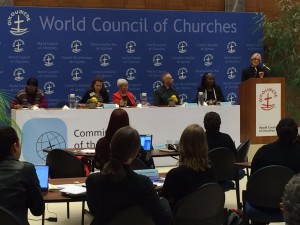HIV has ravaged the world and eroded the life from some 78 million people who have been infected by HIV since 1981. Of these almost 40 million have died. This seems a very grim picture, particularly at a time when interest in HIV seems to be waning fast. Currently we know that there are at least 37 million people living with HIV, and only 16 million of them have access to medication needed to treat HIV.
Factors which inhibit the rapid and complete roll out of a medical response to HIV are complex enough in themselves, but the factors which continue to fuel the fear, stigma and denialism around HIV are deeply entrenched in our society. In reality less than half of the people currently living with HIV know their HIV status. This means that the majority of people living with HIV are simply carrying on with “life as usual”, fearful of knowing their status or ignorant of the need to get tested in the first place.
HIV has attacked us at one of the points we as human beings are most vulnerable; our intimacy. Nowhere are we more exposed, more vulnerable that the moment we share at the deepest level with another person through the life giving, life affirming act of making love, or having sex. What feeds this vulnerability even more is our inability to want to talk about this most private of moments. Our reticence to talk about sex and sexuality is frequently fueled by religious teaching or rhetoric. Claims of sexuality only being possible if heterosexual, intimacy only being “legal” in the sanctity of marriage reserved to those our church chooses to extend it to, creates immediate inequality and additional vulnerability for those who find themselves on the outside of opposite sex attraction.
The Ecumenical Advocacy, one of the ecumenical Initiatives of the World Council of Churches, embarked on an ambitious challenge in 2011 by bringing together people of diverse doctrinal and denominational understandings in relation to human sexuality. The goal of these dialogues was to find a safe space to meet “the other”. Clearly debate was never the objective, rather an open dialogue which allowed participants to listen with love to those who held diametrically different views than their own.
Through support by NORAD and UNAIDS, EAA was able to not only hold successive dialogues, but to collect stories and articles relating to faith, HIV and Human Rights. In a book discussion held at the WCC headquarters on the evening of 10th March Dignity, Freedom and Grace was presented to the Members of the WCC Churches Commission on International Affairs. Professor Isabel Phiri, Associate General Secretary for Public Witness and Diakonia, spoke of the crucial nature of this publication, as a resource Universities would welcome, and researches would reference.
“Dignity, Freedom, and Grace broaches the truly tough questions faced by those with HIV and those who work directly or programmatically with them. It offers strong, substantive discussions of the meaning of human rights, its relation to the more religious language of church traditions, the contextual wisdom of key populations most at risk for HIV, and the best practices and theological reflection of Christian churches.” (WCC Review of the publication) http://www.oikoumene.org/en/resources/publications/dignity-freedom-and-grace

Lämna ett svar